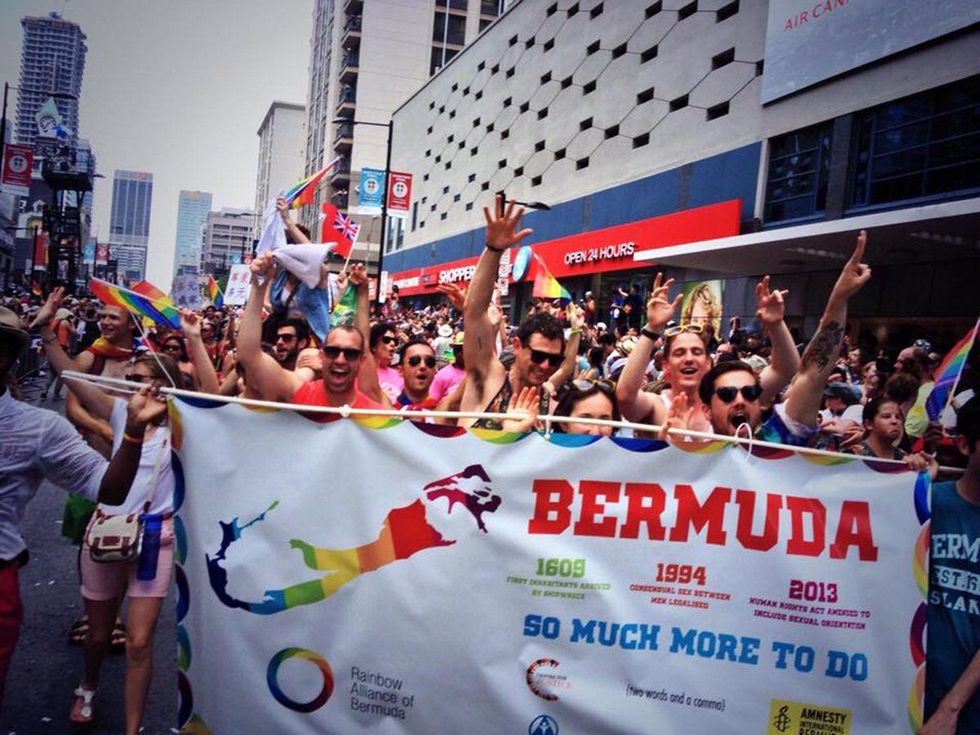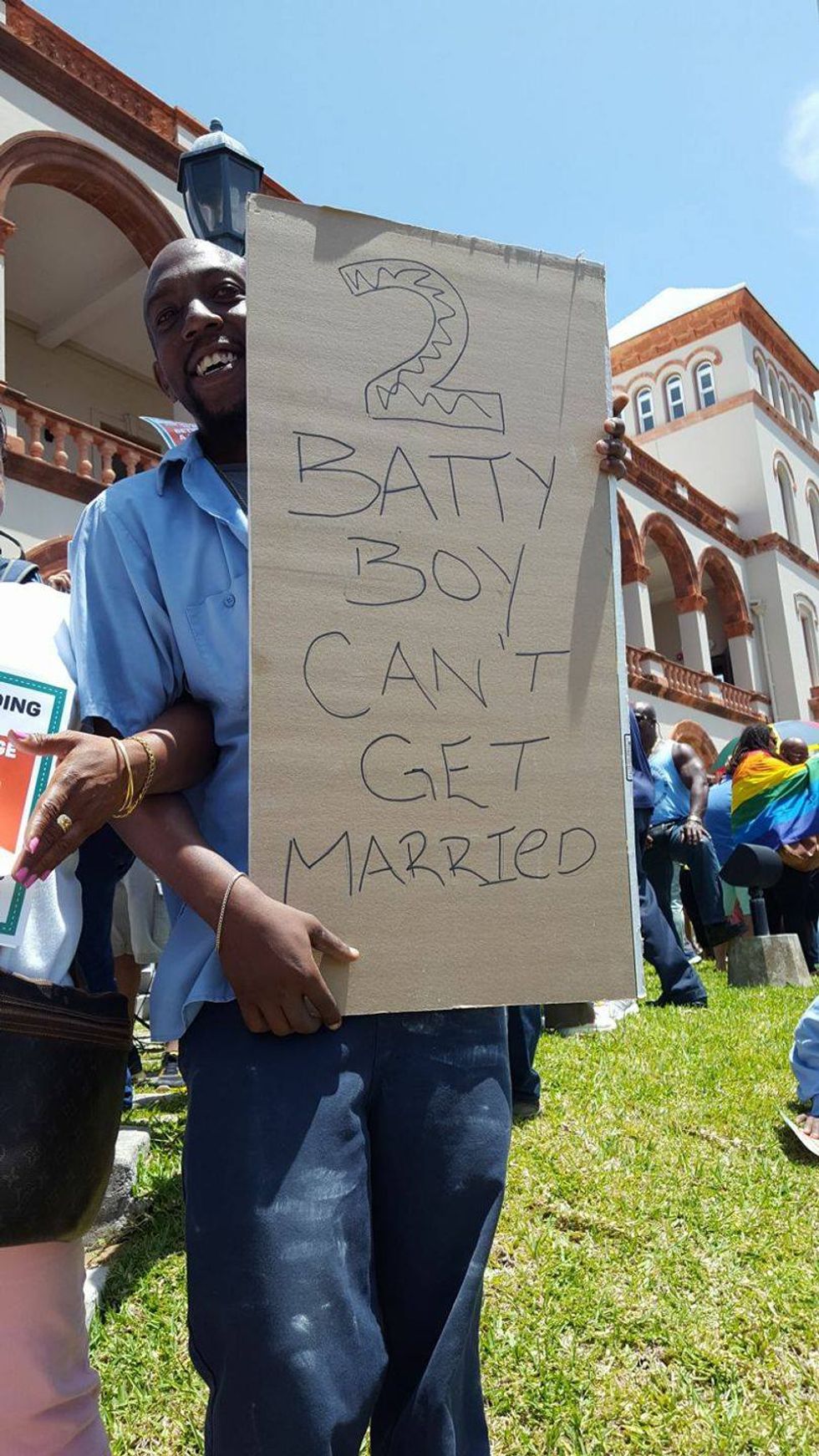Recently, Bermuda gained the dubious distinction of being the first jurisdiction to repeal gay marriage. Now, not three months later, Tourism Minister Jamahl Simmons has stressed the importance of attracting "the pink dollar", which is interesting, since his party was responsible for the Domestic Partnership Act, and he himself admonished Kevin Dallas (Chief Executive of the Bermuda Tourism Authority) for warning the Senate that passing the Domestic Partnership Bill would negatively impact our tourism industry. In Mr. Simmons' estimation, the Domestic Partnership Act was a positive move for the LGBT+ community: "Bermuda has now done something that many of our competitors have not done: guaranteed statutory rights for same-sex couples." Deputy Opposition Leader Leah Scott, while she supports the bill, said she didn't know how Bermuda would manage to attract LGBT+ people in light of it, but "At the end of the day, the LGBTQ community spends money, and they spend big money.
Personally I'm not entirely sure how they're planning to do it either. Aside from the fact that Bermudian society is generally homophobic to start with - all that's necessary to confirm this is take a look at our political discussion pages - attempting to get people to spend money on you when you've just made it very clear that you do not consider them to be equal to you is very unlikely to work. If you google Bermuda, the 4th result that comes up is that we've repealed gay marriage (after our Wikipedia page, the @Bermuda twitter page, and our official tourism website). We are very, very unpopular with the LGBT+ community right now, and for good reason.
Bermuda has a homophobia problem (see image above). There are several obvious factors, like the fact the church has a huge amount of political and social power (which is difficult to avoid when you have more churches per capita than most other countries around the world), Bermuda's generally right-leaning political atmosphere, and the fact that Bermudian society is generally a few decades behind when it comes to social change. There are also less obvious ones, like the fact that Bermuda society insists on an aggressive hypermasculinity that tends to be incredibly hostile to any suggestion of effeminate behaviour.The country is known for looking like it's still in the 50's, but that becomes less charming when people realize that our society holds the views of the 50's as well. It's not right, it's not cute, and it certainly isn't going to persuade LGBT+ people to spend their money here.
We've already started seeing the backlash: #boycottbermuda has become a popular hashtag on Twitter, with even Ellen Degeneres getting involved. As Mr. Winston Godwin DeRoche said in a Royal Gazette interview: "We are a packaged deal: us, our rights, and our money." Of course the Bermuda politics page immediately began posting loads of angry comments to the tune of "mind your own business" in less polite terms, and there's been considerable anger in the same vein towards those suggesting a boycott: Bermudians who agreed with it were deemed "traitors" by several participants, with one even saying that they should have their passports removed. Notwithstanding the obvious parallels to Trump supporters' rhetoric, advocating a boycott is a problem for several reasons. One, that this plays into the narrative that is advanced by those on the religious right (which, to be honest, encompasses the majority of Bermudian politics). If we advocate against Bermuda as a country rather than against these attitudes, we are immediately dismissed. Two, a boycott of Bermuda does not necessarily hurt those who have pushed so hard for this bill. It's not really going to hurt the likes of Preserve Marriage or the MPs responsible: those collection plates will still get filled and parliamentary salaries will get paid, as usual. It will, however, hurt the hospitality industry, the music industry, and small businesses. A large portion of people who work in those industries depend on the tourist season, and make minimum wage or just over. Three, as a friend of mine said, it feels very much as if the Bermudian LGBT+ community has been abandoned by those in the international community. Instead of helping fight for marriage equality, they're making a move that, because of our political landscape, essentially hurts those who are already hurting while not really affecting those who are responsible for dragging us backwards. Boycotting a country isn't like boycotting a business; there's a lot more people and complexity involved.
Bermuda has a homophobia problem, yes. Help us fix it rather than putting us deeper in a hole.























